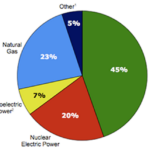In het recente verleden heb ik verschillende malen aandacht geschonken aan Susan Crockford en de lasterlijke aanval op haar wetenschappelijke integriteit door een groep wetenschappers onder leiding van de Wageningse professor Jeff Harvey.

Susan Crockford.
Verschillende respondenten op dit blog waren het met Harvey c.s. eens dat Crockford de nodige wetenschappelijke kennis miste om de ‘consensus’ onder de ijberendeskundigen te bestrijden. Maar onlangs kreeg Susan Crockford bijval van één van hen, die reeds sinds 1978 ijsberen bestudeert: Mitch Taylor.
Onder de titel, ‘Polar bear specialist Mitch Taylor on accountability in polar bear science‘, publiceerde Susan Crockford e-mails van hem die zij onlangs had ontvangen. Zij geven een aardig inzicht in het gekonkel en groepsdenken binnen de zogenoemde IUCN ‘Polar Bear Specialists Group’ (PBSG), die deskundigen met alternatieve opvattingen rücksichtslos excommuniceert, zoals Taylor in 2009 overkwam.
Polar bear specialist Mitch Taylor emailed me and others his response to the New York Times article that appeared Tuesday (10 April) about the Harvey et al. (2018) BioScience paper attacking my scientific integrity. Here it is in full, with his permission, and my comments. …
It has become a lot more difficult to talk about polar bears since they became an icon for climate change as a cause. The information has become secondary to the mission for a number of people who were formerly chiefly concerned with research and management of polar bears. The mission is nothing less than saving the planet by saving the polar bears. Ironically the biggest obstacle to this initiative has been the polar bears themselves.
The real story has been the extent to which polar bears have managed to mitigate the demographic effects of sea ice loss so far. In retrospect this is perhaps not so surprising because polar bears have been around since the Pliocene which means they have persisted through not only glacial cycles, but also through all the natural climate cycles during the glacial periods and interglacial periods.
Did Susan misrepresent the predictions from Amstrup’s “Belief Network” [Amstrup et al. 2007]? Has she misunderstood the population estimates provided by the various technical committees and specialists groups? That is easy to check, because these papers are published. They are part of the record. I have been active in polar bears since 1978. I didn’t recognize 12 of the 14 names on the paper written criticizing Susan for publishing an article about polar bears because she does not have any direct experience in polar bear research or management. Does anyone need to point out how hypocritical this is? Since when does anyone need to tag a polar bear to compare what was predicted to what has happened, based on published information? ….
There are two ways to get a scientific consensus. One is to present the data and the analysis in a manner that is so persuasive that everyone is convinced. The other way is to exclude or marginalize anyone who does not agree. This occurs so commonly now that it has become an accepted practice. The practice of science has become secondary to governments, NGOs, journals, and scientists who feel that the ends justify the means.
The response to Susan’s work is politically motivated, not an argument against her conclusions. The journal’s response to this article and to her complaint was also political. Sadly, BioScience is not a credible scientific journal anymore. We have fake news and fake science.
Is it really so difficult to see what the Amstrup predictions were indexed to, to see if that index has changed, and see if the demographic data are consistent with Amstrup’s predictions or not? Susan has already done the work to show that the polar bear demographic data and sea ice data (all collected and reported by others) do not support the Amstrup et al. (2007) predictions.
If you can’t refute the argument, the only thing left is to discredit the author. Where did they get their funding? How many bears have they tagged? Are they in the club or not? … And if not in the club, what the hell are they doing voicing an opinion? How are right-thinking good people like us going to maintain the impression of omnipotent knowledge and scientific consensus if people like Susan are allowed to hold us accountable for what we publish? …
To me the loss of credible information is the real harm that has resulted from turning scientific inquiry into an agenda driven exercise … even for a good cause.
Some may see parallels within climate science world to the polar bear experience.
Aldus Mitch Taylor.
Lees verder hier.






“Verschillende respondenten op dit blog waren het met Harvey c.s. eens dat Crockford de nodige wetenschappelijke kennis miste om de ‘consensus’ onder de ijberendeskundigen te bestrijden.”
Geen idee wie die correspondenten zijn, maar ik heb meermaals gezegd dat ze uitstekend gekwalificeerd is om een wetenschappelijke studie te schrijven op dat gebied, maar dat ze dat tot nu toe heeft nagelaten.
Ik heb Henk dJ, Guido of Ronald ook niets zien schrijven wat er op wijst dat ze het daar niet mee eens zijn.
Wel verrassend natuurlijk is het feit dat hij gelieerd is met het heartland istituut en dat hefet natuurlijk meer met ideologie te maken dan met wetenschap
heartland.org/about-us/who-we-are/mitch-taylor
Kameraad Janos, kampioen op de man spelen.
Kijk eens naar de reactie “Tije 19 april 2018 om 09:17” hieronder. Dat is trollen. Dat is op de man afspelen.
Wat JvdH doet, is enkele pijnpunten blootleggen, waar jij blijkbaar niet op wil reageren!
Don’t feed the trolls !!
Nee, dat doet men hier onder het motto “ook oervervelende troll”correspondenten” zijn respondenten” bij voorkeur wel, men gaat er zelfs op dagelijkse basis mee in discussie. In het Rypke Zeilmaker tijdperk had Rypke deze Greenpeace troll door en bande hem ook, de (voornamelijk) oudere heren hier vinden het blijkbaar niet erg om dagelijks op deze übervervelia te reageren.
Zonder scrupules meldt Jan de Volgetljesman zich in de comments, want het is weer tijd voor kastijding!
Jan, volgens mij heb je geen idee hoe het voelt, maar je zou je moeten schamen. Werkelijk waar. Ik snap dat je het fijn vindt op dit blog een soort van rituele zelfvernedering te doen. Maar besef je wel dat het niet normaal is om daar genoegen uit te halen. Je bent echt anders, Jan.
Ik kijk er niet gek van op. De hele alarmistische open inrichting vertoont sterk masochistische, zelfvernederende trekjes. Het “weg met ons” moet immers in sterk contrast staan met het halleluja van de (peperdure) duurzaamheid?
Het wachten is op de e.o.a. ommekeer van een zeker algemeen onbehagen (Bas Heijne kwam na 2 decennia ook ergens achter) . Waarna uiteraard iedereen weer massaal de andere kant op rent..
lekker belangrijk die ijsberen. Hoe komt dit onderwerp toch steeds weer op climategate, een blog over het klimaat. Laten we het hebben over (gevaarlijke?) opwarming, en zo ja de reden daarvan. Laten we het dus hebben over temperaturen en broeikasgassen enz. En over overdrijving en bedrog door belanghebbenden.
Erik,
De ‘uitstervende’ ijsbeer wordt traditioneel als icoon van klimaatverandering c.q. opwarming geafficheerd. Dat blijkt dus een verkeerde keuze op basis van gemanipuleerde wetenschap te zijn geweest. Als zodanig beschouwen vele sceptici deze gang van zaken als zijnde representatief voor wat er ook wel elders op het terrein van de klimatologie plaatsvindt. Vandaar dat het relevant is hier aandacht aan te schenken.
Inderdaad het is representatief hoe de “sceptici” in de discussie staan
1. Weigeren het onderzoek te lezen
2. Trek conclusies die niet in het onderzoek staan en blijf die herhalen als de waarheid
3. Blijf het bovenstaande tot in eeuwigheid herhalen zonder in te gaan op argumenten van “alarmisten”
Vandaar dat het relevant blijft om “sceptici”hierop te blijven aanspreken.
Trouwens Hans, je blijft bezig met het aanvallen van de wetenschappelijke integriteit van Harvey. Heb je daar geen problemen mee?
Oh en “gemanipuleerde wetenschap” dat is een zware beschuldiging, heb je daar ook een voorbeeld van?
Dit is een deel van de samenvatting van de studie van Harvey
“Internet blogs have strongly contributed to this consensus gap by fomenting misunderstandings of AGW causes and consequences. Polar bears (Ursus maritimus) have become a “poster species” for AGW, making them a target of those denying AGW evidence. Here, focusing on Arctic sea ice and polar bears, we show that blogs that deny or downplay AGW disregard the overwhelming scientific evidence of Arctic sea-ice loss and polar bear vulnerability. By denying the impacts of AGW on polar bears, bloggers aim to cast doubt on other established ecological consequences of AGW, aggravating the consensus gap.”
academic.oup.com/bioscience/article/68/4/281/4644513
Verder lezend komen we dit tegen
“At the same time, many denier blogs pay little or no attention to the volumes of physical evidence for AGW and the empirical biological and ecological evidence of its effects (Nisbet 2014). Because this evidence is so overwhelming, it would be virtually impossible to debunk; the main strategy of denier blogs is therefore to focus on topics that are showy and in which it is therefore easy to generate public interest. These topics are used as “proxies” for AGW in general;”
Het gaat dus vooral om de communicatie op “sceptische” blogs en dus niet over de wetenschappelijke integriteit van Susan Crockford. Wel natuurlijk over de integriteit van “scpetische” bloggers.
Tekenend is natuurlijk dat dit totaal wordt ontkent
Ik kan me herinneren dat Susan Crockford in de volgende alarmistische repliek figuurlijk “gevierendeeld” werd door de trol-klimaatalarmisten, omdat Crockford zo pijnlijk steekhoudende kritiek had op het frauduleuze ijsbeer-klimaatalarmisme. I
Ik zou dus niet zo hoog van de morele hoge toren blazen over de stijl van de communicatie in het debat alhier.
Van een dagelijkse ad hominem door jou ben je toch niet vies, Heyden?
BTW : ontkent moet zijn ontkend, dat dan is ook weer tekenend voor Heyden.
JvdH
Kun jij met een gedegen onderzoeksrapport komen van een onafhankelijke onderzoeksinstelling?
TV01: dat onderzoek van Harvey et al is een gedegen onderzoeksrapport van een onafhankelijke onderzoeksinstelling.
Maar kun jij (of Hans of ook maar iemand anders hier) op een gedegen manier daar kritiek op geven? Merk bijvoorbeeld op dat de kritiek van Mike Taylor niet onafhankelijk is, want hij behoort (net als Crockford) tot de libertaire pro-fossiele lobbygroep Hearthland Institute.EN merk ook op dat zijn kritiek niet gedegen is, en helemaal niet ingaat op de feitelijke analyse van Harvey.
Onderzoek van Harvey een gedegen onderzoeksrapport? Misschien wel voor sociologen, psychologen en andere nep-wetenschappers, maar het is natuurlijk gewoon een opiniestukje, opgeleukt met wat pseudo-statistiek om het een wetenschappelijk tintje te geven. Een typisch staaltje van cargo-cult science.
Veerma, je geeft kritiek op de peer-reviewde studie van Harvey, maar legt niet uit wat er volgens jou niet wetenschappelijk onderbouwd is. Ze beschrijven expliciet hoe ze hun data verzamelden (bvb hoe ze verschillende blogs interpreteerde) en dit analyseerden (principal component analyse). Leg eens uit wat daar onwetenschappelijk aan is?
Dus, hoe wetenschappelijk verdedigbaar is jou standpunt?
Dat is dus waarom peer reviewed betekenis over de jaren helaas toenemend is gedevalueerd tot onbetrouwbaar en gepolitiseerd klimaatalarmisme. Het wantrouwen voor peer reviews bij alarmistische klimaatrapporten stijgt door dergelijke randfiguren uit de wetenschap die tot de KNAW worden toegelaten. Sinds Dijkgraaf ging het bergafwaarts bij de KNAW, of begon het verval al eerder?
Hans, je schrijft: “De ‘uitstervende’ ijsbeer”. Waar is er ook maar enig bewijs dat de ijsbeer nu uitsterft? Dat is helemaal niet wat de wetenschap (biologen of klimaatwetenschappers) beweren.
De wetenschap heeft momenteel geen bewijzen dat het aantal ijsberen daalt. Ze hebben wel bewijzen dat het Poolijs jaar na jaar verdwijnt. Ze hebben ook bewijs dat ijsberen op poolijs leven. Als over zo’n 30-50 jaar er nog maar weinig poolijs zal zijn, dan zullen de ijsberen een probleem hebben. Dat is de onderbouwde voorspelling van de wetenschap.
Maar ja, doe maar lekker alarmistisch. Doe maar lekker aan het verkeerd voorstellen van de wetenschap. EN beweer dan maardat het “gemanipuleerde wetenschap” is. Gemanipuleerd door AGW-negationisten, ja!
henkdj
“Als over zo’n 30-50 jaar er nog maar weinig poolijs zal zijn”
Hoe weet je dat Henk, misschien is er dan wel meer zeeijs.
IK baseer mij op het gedegen onderzoek van de klimaatwetenschappers. Waarop baseer jij je om te denken dat er dan misschien wel meer zeeijs zal zijn? Overtuiging? Omdat dit in je kraam past?
Gedegen? Als er iets is gebleken is uit climategate dan is gedegen wel de laatste kwalificatie die je mag geven.
Er is een wetenschappelijk debat om zeep geholpen, en daar werk jij vrolijk aan mee.
Er is gebleken dat gedegen onderzoek verdraaid wordt door mensen met een overtuiging maar zonder wetenschappelijk inzicht. Paranoiden die menen dat echt alle klimaatwetenschappers in één groot complot zitten.
Nee hoor, er is geen echt complot. Althans als je heel mild bent over de climategate emails en dat soort zaken door de vingers wilt zien dat emails moesten worden gewist en dat peer review moest worden geherdefinieerd om publicatie van bepaalde studies te voorkomen.
Voor alarmistisch klimaatgedrag kunnen je kiezen tussen preconceptuele wetenschap: casadelogo.typepad.com/factesque/2009/06/danae-explains-science-for-sciencehaters.html
of een mengsel/symbiose van “terror management,”,
nl.wikipedia.org/wiki/Terror_management_theory
met moral panic:
en.wikipedia.org/wiki/Moral_panic
en een forse portie groepdenk:
https://nl.wikipedia.org/wiki/Groepsdenken
Maar ik kan me voorstellen als je daar midden in zit dat je daar geen idee van hebt.
En voor André is dat alles dus ‘bewijs’ dat ALLE (klimaat)wetenschappers in een complot zitten. Je moet er dus geen enkele van geloven.
Lekker handig om je eigen overtuiging te kunnen verdedigen: iedereen die het niet met je eens is, zit in een complot, of wordt de mond gesnoerd door het complot, enz… ZO hoef je niet meer na te denken over de inhoud van een argument, kan je lekker de feiten die gepresenteerd worden door deze ‘complotters’ negeren, enz.
En waarop baseert André zich? Op niets natuurlijk. Omdat jij wikipedia aanhaalt, hier is wat er daar staat over climategate: “Alle onderzoeken over de e-mails hebben tot dusver geconcludeerd dat de betrokken wetenschappers geen enkele vorm van wetenschappelijke fraude hebben begaan. Er werden wel tekortkomingen vastgesteld in de communicatie.” Maar ja, toch zijn er zovelen die blijven geloven dat het een complot was…
Nog één keer dan Henk: de ijsbeer werd op de rode lijst geplaatst, niet omdat de aantallen schrikbarend afnamen, (ze namen juist toe), maar omdat een computermodel vond dat als zeeijs afneemt ijsberen ook moeten afnemen. Jaren van grote zeeijsafname gingen niet gepaard met afname van ijsberen, dus is het model fout.
Snap je?
Hans Erren, kun jij niet begrijpend lezen? Wat jij nu beweert, is toch exact hetzelfde als ik schreef? “De wetenschap heeft momenteel geen bewijzen dat het aantal ijsberen daalt. Als over zo’n 30-50 jaar er nog maar weinig poolijs zal zijn, dan zullen de ijsberen een probleem hebben. Dat is de onderbouwde voorspelling van de wetenschap.”
Of ga je nu leuteren dat een combinatie van historische data, een degelijk computermodel en een hele hoop kennis over klimaat nog geen reden is om aan te nemen dat het poolijs aan het verdwijnen is?
Ga eerst terdege na wat er staat, voordat je weer in een krampachtige stuip trekt bij het zien van mij naam en begint kritiek te uiten!
Geen woorden in mijn mond leggen Henk.
Waarneming: zeeijs neemt af en ijsberen nemen niet af
Conclusie ijsberen zijn niet gevoelig voor zeeijs.
zl simplistisch, Hans. Het ijs neemt af, maar nu is er nog voldoende. Maar eens de drempelwaarde wordt overschreden…
Die drempelwaarde was in 2007 al overschreden, zonder merkbaar effect op de ijsbeerpopulatie.
Dat noemen we popperiaanse falsificatie..
https://nl.wikipedia.org/wiki/Falsifieerbaarheid
Nee Hans, de drempelwaarde was in 2007 nog niet overschreden. Je misinterpreteert de studie van Crockfort, die dan weer de data over poolijs misinterpreteerde.
henk dj
Ik baseer mij op de zeeopp temp data en de gedegen beproefde techniek van fourier analyse. De hoeveelheid ijs wordt niet bepaald door de atmosfeer temperatuur, maar door de watertemperatuur.
Extrapolaties van 30 tot 50 jaar in de toekomst zijn hoogst onzeker. Probeer maar eens een trend door de zeeijsdata.
http://woodfortrees.org/plot/hadsst3nh/last:1488/detrend:0.786/fourier/low-pass:2/high-pass:2/inverse-fourier/detrend:-0.786/offset:-0.38/plot/hadsst3nh/last:1488/mean:12/plot/hadsst3nh/last:1488/detrend:0.786/fourier/low-pass:2/high-pass:2/inverse-fourier/detrend:-0.786/offset:-0.41/from:1914/to:1976
Leg eens uit Erik: Je zegt zelf dat de hoeveelheid ijs wordt bepaald door de temperatuur van zeewater. je toont zelf een grafiek met een duidelijke trend van stijgende temperatuur van het zeewater. Maar toch denk je dat “[over zo’n 30-50 jaar] … misschien is er dan wel meer zeeijs].
Dus, waarom meer ijs indien er een duidelijke trend is van stijgende temperatuur????
De ijsbeer overleefde 600.000 jaar glacialen en interglacialen en is daarmee wereldkampioen aanpassen aan de klimaatverandering.
De ijsbeer is daarmee de schandvlek van het gepolitiseerde klimaatalarmisme dat ozo serieus wil worden genomen, maar dat schijnen deze klimaatalarmisten nog niet door te hebben.
Bernice Notenboom was gisteren weer op TV, want ze gaat nog eens alarm slaan over het klimaat op Spitsbergen.
Er is niets alarmistisch te melden over het klimaat op Spitsbergen, maar amateur wetenschapsjournalist Notenboom lukt het, wars van kritiek. Het is haar verdienmodel, dan begrijp je de kritiek natuurlijk niet.
https://www.climategate.nl/2018/03/motief-bernice-notenboom/
Inderdaad. Vanaf 8.30 Bernice op missie naar Spitsbergen met haar andere rijke vriendjes om nog meer kruisbestuivingen te bewerkstelligen, oftewel verdienmodellen te bekrachtigen met de moreel chanterende noodkreet: we hebben nog maar vier jaar!
https://www.maxvandaag.nl/programmas/tv/tijd-voor-max/wereld-tinnitus-dag/POW_03738633/
Als café eigenaar kan je vrijblijvend een bord ophangen met de tekst “morgen gratis bier”. Meteorologisch onheil wordt gewoonlijk 10 jaar vooruit geprojecteerd. Vier is wel erg kort!
Scheffer
Er zijn erg veel gletsjers op spitsbergen en dan zie je veel afbrokkelend ijs.
Neem een klimaat alarmist/wetenschapper mee en die laat zien dat het ijs smelt en de verklaring ” het komt door de mens” (of zou het gewoon het seizoen zijn).
Daarnaast is Spitsbergen een goede vakantiebestemming alleen in de winter is het wat donker.
https://www.belugareizen.nl/bestemmingen/algemene-informatie-spitsbergen/
Heerlijk de opwarming in de zomer.
REIZEN IN ALLE JAARGETIJDEN
ZOMER
Het zomerseizoen op Spitsbergen loopt van half juni tot eind augustus. Dan kunnen, wanneer sneeuw en ijs geweken zijn, schepen uitvaren. (Wandel)tochten naar het binnenland van Spitsbergen zijn mogelijk vanaf begin/half juli. 24 uur daglicht in combinatie met redelijk standvastig weer biedt uitstekende reismogelijkheden. De maanden juni en juli zijn geschikt voor vogelliefhebbers, in juli bloeien de meeste planten en augustus biedt prachtige herfstkleuren. Walrussen, zeehonden, walvissen en ijsberen kunnen de hele zomer gezien worden.
> Voor een korte kennismaking en relatief klein budget kunt u kiezen uit een verblijf op maat in de “hoofdstad” Longyearbyen met excursies, de Zomerkennismakingsreis of de Arctische kennismaking Tromsø en Longyearbyen.
> Wie meer van Spitsbergen wil zien, kan kiezen voor een van de reizen per zeilschip of met een van de expeditiecruiseschepen.
> Heeft u eerdere reizen met de Hurtigruten gemaakt? Dan wilt u wellicht ook Spitsbergen verkennen met het traditionele Hurtigutenschip Nordstjernen of het moderne, luxere schip Fram.
> Bent u op zoek naar een actievere vakantie? Op Spitsbergen kunt u ook wandelen, trekken, kajakken en er is een reis met verschillende activiteiten.
het lijkt mij toch redelijk simple om onderzoeksrapporten te vinden over aantallen ijsberen, net zo goed als het DMI.dk gegevens publiceert over ijs en watertemperatuur.
Als het zo erg is met de ijsberen zoals de alarmisten schrijven, waar zijn de gegevens van de instituten dan?
O ja, het is zo erg met de polen, dat er onlangs nog een kolonie van 1,5 miljoen pinguïns is ontdekt. Dus het lijkt mij dat deze dieren en de ijsberen zicht goed redden.
TV01: waar schrijven de “alarmisten” dat de ijsberen verdwijnen en “dat het zo erg is met de ijsberen”? Dat is ‘fake news’ van AGW-negationisten!
De wetenschap heeft momenteel geen bewijzen dat het aantal ijsberen daalt. Ze hebben wel bewijzen dat het Poolijs jaar na jaar verdwijnt. Ze hebben ook bewijs dat ijsberen op poolijs leven. Als over zo’n 30-50 jaar er nog maar weinig poolijs zal zijn, dan zullen de ijsberen een probleem hebben. Dat is de onderbouwde voorspelling van de wetenschap.
De wal keert het schip: als de burgers de rekeningen moeten gaan betalen, gaan ze op andere partijen stemmen. Er is een nieuwe partij in de maak. Ik ben tot nu toe het enige lid. Maar kwaliteit gaat boven kwantiteit. De naam wordt binnenkort geregistreerd. Wie die naam wil jatten moet haast maken. Hij/zij kan zich ook als lid bij mij opgeven. Met z’n tweeën sta je al 100% sterker. Nietwaar?! Nu de naam: POUP (de associatie met POEP is om aandacht te trekken). Waar staat POUP voor? PAS OP UW PORTEMONNEE. De associatie met zakkenrollen geeft exact aan waarmee de overheid en aanverwante criminele instellingen bezig zijn.
Volgens Urgenda.
Het smelten van Groenland zorgde er 400.000 jaar geleden voor dat de zeespiegel 4 tot 6 meter rees.
!00.000 jaar geleden was het ook al zo. Het tijdvak Eemien is naar een riviertje in Gelderland genoemd waar fossiele schelpen van 100.000 jaar oud gevonden zijn. 6 meter boven N.A.P.
En die ijsberen zijn er nog steeds. Taai ras hoor.
En Urgenda maakt zich zorgen voor nog zulk een zeespiegel stijging door menselijk toedoen.
De mensen die denken dat ze het klimaat kunnen beheersen bevinden zich op drijf ijs.
De top van het Eemien ligt bij Amersfoort op een diepte van 8 m.
De bodem is daar ~14 m gedaald in 125000 jaar, ongeveer 1 cm per eeuw. Dat komt goed overeen met de huidige gemeten waarde.
IJsberen lopen nog niet zo lang rond, recente schattingen geven aan dat ze 250 000 tot 130 000 jaar geleden van de bruine beer afsplitsten. IJsbeer en bruine beer (Ursus maritimus resp. Ursus arctos) worden beschouwd als twee verschillende soorten, hoewel ze kunnen kruisen en hun nakomelingen vruchtbaar zijn.
De ijsbeer heeft dus hooguit twee glaciaal-interglaciaal cycli meegemaakt.
Mitch Taylor is niet zomaar een ijsbeer-onderzoeker. HIj is ook een AGW-negationist en geaffilieerd met de libertaire lobbygroep Hearhtland Institute. Dus het is niet te verbazen dat hij propaganda maakt voor de visie van Crockford. Ze zitten in hetzelfde ‘clubje’!
Taylor beweert “I didn’t recognize 12 of the 14 names on the paper written criticizing Susan”. Maar de feiten zijn: “The credentials of many of the BioScience paper’s authors include long lists of published, peer-reviewed articles and studies on these subjects [climate science or its effects on polar bears].” Dus, dit zegt eerder iets over deze (gepensioneerde)Taylor en zijn kennis van de huidge generatie ondezoekers, niet?
En de belangrijkste kritiek in het Harvey-artikel op Crockford is ook niet dat zij de populatie ijsberen verkeerd inschat. De kritiek is dat zij (en andere “denier-blogs”, die haar vaak citeren) veel opnies geeft die niet gebaseerd zijn op wetenschap. Maar daar blijkt Taylor niet op in te gaan.
Wat staat er trouwens nog in de NY Times? “Dr. Harvey said the paper grew out of the increasing frustration he and other scientists felt about the spread of false information, the disregard of established evidence and the harassment of researchers that has in some cases accompanied the public debate on climate change.” Daar zwijgt Taylor blijkbaar liever over: de AGW-negationisten die geiten feiten, fake news verspreiden, …
Het smeltende zee ijs in de arctic.
In de site van Arctic Sea Ice zijn de gegevens te vinden van de jaarlijkse minimum oppervlakte van dat ijs.
Het minimum oppervlak gemiddeld over de laatste 5 jaar bedroeg 4658000 km2.
Het minimum oppervlak gemiddeld over de 5 jaar ervoor bedroeg 4400000 km2.
Weinig zorgen voor de ijsbeer dus.
Zo juist heeft Crockford weer een bijdrage geleverd op WUWT over de habitat van ijsberen t.t.v. het vroege Holoceen.
https://wattsupwiththat.com/2018/04/23/study-less-svalbard-polar-bear-habitat-during-the-early-holocene-than-now/
Polar bears not starving, says Nunatsiavut wildlife manager
cbc.ca/news/canada/newfoundland-labrador/polar-bear-population-hunt-nunatsiavut-1.4628156